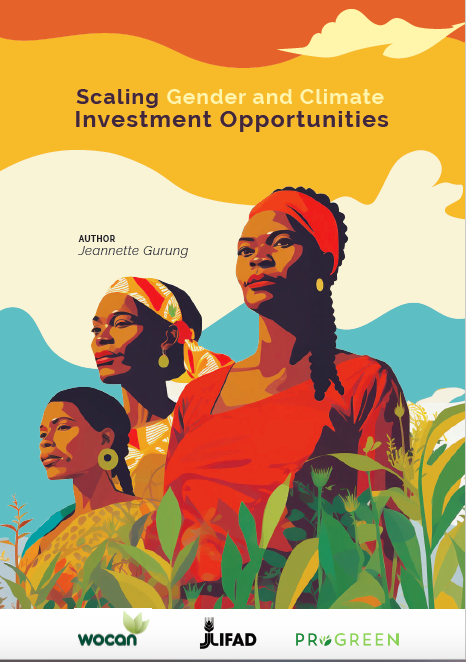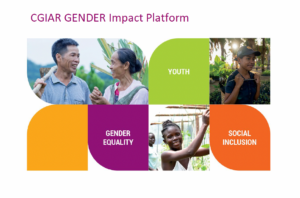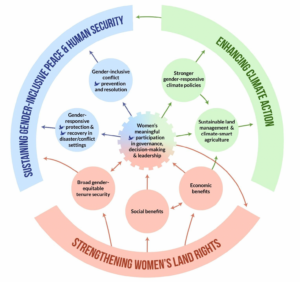This discussion paper strives to address a gap in data on the impact of women on climate mitigation and adaptation, limiting further investment from the development and financial sectors. After examining existing quantitative data on the links between gender equality and climate action, we found that evidence was scarce. We therefore recommend mapping climate solutions that overlap with activities of women’s existing or potential roles to inform the development of an approach for climate planners that want to adopt a gender lens. With the end goal of enhancing women’s engagement in activities that are likely to have the largest impact on the climate, namely those that eliminate or mitigate emissions in agriculture and land use practices predominantly managed by women.
The paper suggests new opportunities for integrating gender and climate finance in addition to funding
mechanisms with the potential to scale investment toward gender equality and climate results. To achieve the most significant impact, findings point to two approaches:
1) supporting women entrepreneurs and farmers through women-focused programs in:
a)green jobs and supply chains;
b) climate mitigation; and
c) climate-smart agriculture and natural resource management practices, and
2) financial mechanisms, including voluntary carbon markets, outcome-linked funds, and bonds.
Author: Jeannette Gurung
Source: WOCAN, IFAD, PROGREEN, World Bank




